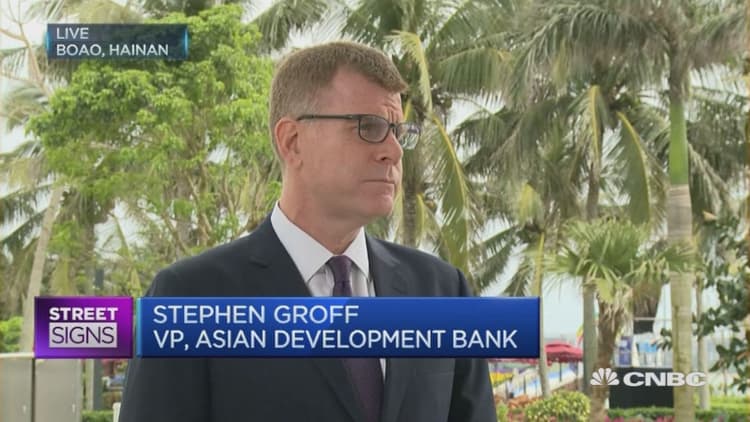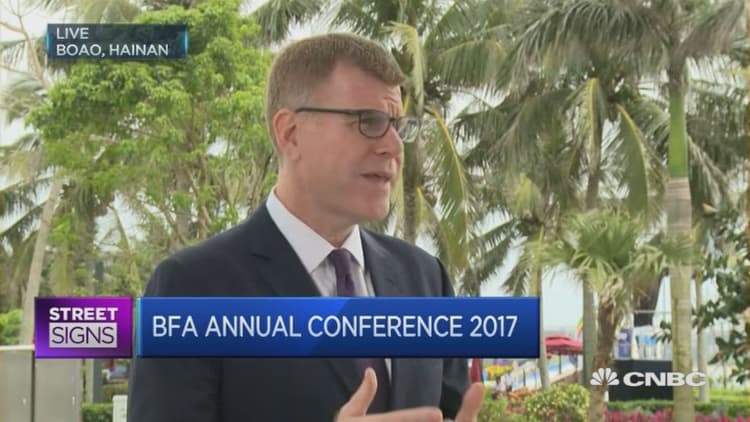
President Donald Trump's 'America First' agenda has led to concerns over the rise of protectionism globally, but a senior executive at the Asian Development Bank (ADB) told CNBC it is not the time to hyperventilate over the administration's planned policies.
Stephen Groff, a vice president at ADB, said to CNBC at the sidelines of the Boao Forum in Hainan province, China, that the bank is closely observing developments coming out of the United States, including on trade.
The Trump administration has put emphasis on having "fairer" trade deals with other countries, vowing to renegotiate existing multilateral agreements like the North American Free Trade Agreement with Mexico and Canada. Since taking office, Trump has pulled the U.S. out of a key 12-member Pacific trade deal.
"What we have to do is take a step back and realize that these things happen in cycles. We have seen protectionism emerge over the course of history and we've seen it sink. Right now, we're watching and we're monitoring, but we're not hyperventilating," Groff said.
Earlier this month, a U.S. federal budget proposal suggested foreign aid, grants to multilateral development agencies like the World Bank and climate change programs at the United Nations could be hit hard under Trump's 'America First' agenda.
But Groff said the ADB, which assists members by providing loans, technical assistance, grants and equity investments to promote socio-economic development, is not worried about the proposed budget.

"The budget that's been put forward is a skinny budget," he said. "There's not a lot of details right now. This will go through a process in Congress, (which) has already said that they don't want to see massive cuts in diplomacy or foreign aid."
The U.S. is a founding member of the 67-member development bank, but Groff noted as a multilateral institution, the ADB also answered to 66 other member countries. In the long run, he expected the United States' longstanding relationship with Asia to prevail.
Speaking about Asia, he added the region remains resilient to prospects of higher interest rates in the U.S., and that barring any unexpected shocks, most countries have already put in place measures to cushion against the impact.
On China, Groff said the bank didn't have too many concerns either, noting policymakers were well-equipped to handle risks.
"We think that the macroeconomic policy managers in China are very skilled. They have a lot of experience, they still have tools and instruments at their disposal (and) they have shown their ability to manage these risks, and manage them quite well."



